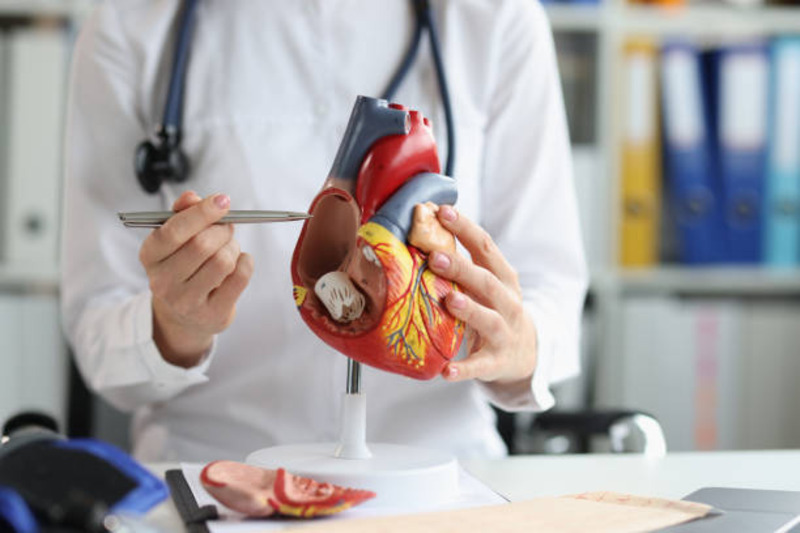Heart palpitations can be incredibly scary and uncomfortable. You may feel like there is something seriously wrong with your heart, as if it's racing too fast or skipping beats. For most people, heart palpitations are not a sign of anything serious and are considered relatively normal in healthy individuals when related to factors such as exercise, excitement, stress or even caffeine intake. In this blog post we will discuss what might be causing these sometimes frightening occurrences and how to find out more about them - don’t worry though, help is at hand!
Causes of stress and anxiety that can trigger heart palpitations:
Stress and anxiety are common experiences in today's fast-paced world. However, these feelings can sometimes lead to heart palpitations, which can be concerning and uncomfortable. These palpitations occur because when we are stressed or anxious, our body releases chemicals like adrenaline, which can cause our heart rate to increase rapidly.
Stress and anxiety can also cause the release of cortisol, a hormone that can constrict our blood vessels, making our heart work harder to pump blood. Everyday stressors like;
- Family issues
- Job dissatisfaction
- Financial difficulties
Can also contribute to heart palpitations. It's crucial to manage stress levels properly to avoid these disturbing symptoms for a healthier life.
Impact of alcohol, tobacco, caffeine, and other stimulants on the heart:
From a young age, we're all warned about the dangers of smoking and drinking. But did you know that even caffeine can have negative effects on your heart health? That's right, excessive use of caffeine, alcohol, and tobacco, can all take a toll on your heart, leading to a range of health issues such as;
- High blood pressure
- Irregular heartbeats
- Even heart attacks
While it's unlikely that we'll give up our morning coffee or drinks with friends altogether, it's important to keep these substances in moderation to protect our hearts and overall well-being.
Diet related causes such as an imbalance of electrolytes, dehydration or anemia:
Proper nutrition is key to keeping our bodies healthy and thriving.
- An imbalance of electrolytes, dehydration, or anemia can all contribute to negative health effects.
- Electrolytes, such as sodium, potassium, and calcium, help regulate important bodily functions like our heartbeat and muscle movement.
- Dehydration occurs when we lose more fluids than we take in, leading to fatigue, headaches, and dizziness.
- Anemia, a condition in which the body does not produce enough red blood cells, can cause weakness and shortness of breath.
Ensuring a healthy and balanced diet can help prevent these diet-related causes and promote overall wellness.
Relationship between hormones and heart palpitations:

Our bodies are complex systems, with numerous processes and functions occurring simultaneously. One of the key areas where this complexity can be seen is the relationship between hormones and heart palpitations. Hormones play a critical role in regulating our bodily functions, and changes in their levels can have a significant impact on our health.
When hormone levels fluctuate, it can cause a variety of symptoms, including heart palpitations, which is the feeling of your heart skipping a beat or racing. While heart palpitations are generally not harmful, they can be unsettling and cause anxiety.
Over-exercising leading to abnormal heart rate:
For many individuals, exercise is an important part of their daily routine, providing countless physical and mental benefits. One possible effect of excessive exercise is an abnormal heart rate, which can be a cause for concern.
This condition occurs when the heart is unable to properly regulate its beats per minute, which can lead to symptoms like;
- Dizziness
- Fatigue
- Fainting
It is important to find a healthy balance in your exercise routine that supports your overall wellbeing without jeopardizing your heart health.
Medications that can cause side effects resulting in heart palpitations:

Medications can be a lifesaver for many people, but sometimes the cure can be worse than the disease. Certain medications can cause side effects that range from mild to severe, such as heart palpitations. These sensations of a rapid, fluttering, or pounding heartbeat can be quite alarming, especially for those who do not know the underlying cause.
Medications such as asthma inhalers, decongestants, and even some prescription drugs can be to blame for heart palpitations. While these side effects are not always dangerous, it is important to speak to a healthcare provider if you experience them while taking medication.
Conclusion:
Heart palpitations can cause discomfort and anxiety, but with understanding of the possible causes and triggers it is possible to take proactive steps to reduce frequency of episodes. Identifying any stressors you may have in your life is a key factor to managing palpitations, such as taking time out for relaxation and practicing deep breathing. Alcohol, caffeine, tobacco, and other stimulants should be moderated to prevent undesired side effects on your body and regular exercise should be supplemented with adequate rest. Being aware of how medicines transition into your system during cycles of starting or stopping doses can help minimize any issues from developing.




